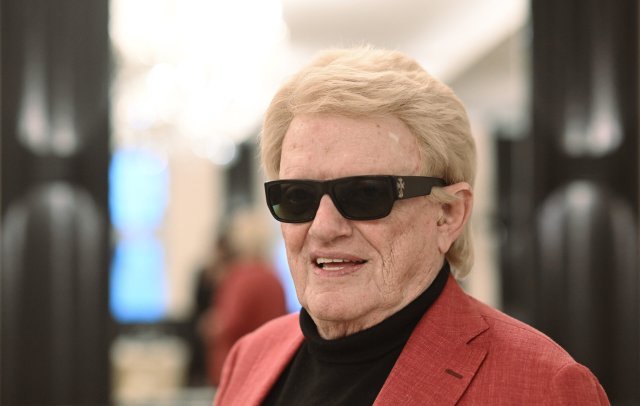Pop singer Heino
Photo: Photo: dpa/Robert Michael
Lower Saxony, small town on the Weser, early 1990s: The boy Heino lived with his family just before the cornfield on the outskirts of the city. He experienced exclusion from his peers not only because of poverty, but also because of his name. Both were common. Whenever this unfortunate boy was called by his name, those present inevitably thought of the unfortunate singer of well-known folk songs of the brand “Black-brown is the hazelnut”. Who wouldn’t be uncomfortable with that?
This adjective best describes Heinz Georg Kramm, who was born in Düsseldorf in 1938, i.e. the older Heino. It’s less the combination of sunglasses, which he wears because of an eye disease, and a blonde toupee, but rather his Biedermeier style, which he has cultivated to this day, that makes everyone’s shame scale explode. And this Upper German, who is committed to his German homeland, recognized knife-carrying marauders on the local streets. “Germany needs a Trump who is there for his people,” the singer suggests as a solution. And further: Politicians are needed “who care about Germany.”
Politically, this is not the first time that the trained baker has been on the right flank. This is how he appeared during apartheid in South Africa. At the request of the then Prime Minister of Baden-Württemberg and former Nazi naval judge Hans Filbinger (CDU), Heino also recorded all three verses of the Deutschlandlied. Whether “Germany above all” or “America first!” – both sound the same to Heino.
Subscribe to the “nd”
Being left is complicated.
We keep track!
With our digital promotional subscription you can read all issues of »nd« digitally (nd.App or nd.Epaper) for little money at home or on the go.
Subscribe now!
